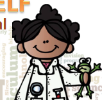
Possible Self
The Future of Artificial Intelligence: A Possible Self Conference
Understanding Education, Racial Biases, and the Algorythms
Friday, May 2, 2025 • 11:00 a.m.-1 p.m.
Location: TBD
Lunch provided from 1-2 p.m.
Academic Integrity: Creating a culture, use of ethics and increasing Equity.
How Machine Learning and Data Science will change the world economy.
Panel DIscussion:
- Mike Murphy
- Ethan Barry
- Lawrence Lew
- Shyamala Prayaga
- Eros Marcello
Immersing ourselves in a knowledge and experienced rich conversation where thought leaders, visionaries, and industry experts converge to share groundbreaking insights into the future of Artificial Intelligence
and more...

Questions?
We're Here to Help!
Karl Welch, Possible Self Director
(510) 695-3282
STEM Center, 4202
